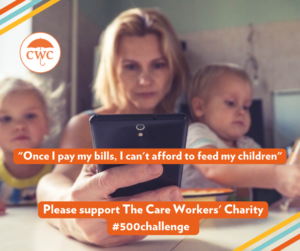 Two reports published today paint another bleak picture of the workforce crisis in social care. Skills for Care are reporting yet another rise in the vacancy rates for social care, making them the highest on record. Meanwhile, new analysis by the Health Foundation shows that even before the pandemic, over a quarter of residential care workers lived in poverty.
Two reports published today paint another bleak picture of the workforce crisis in social care. Skills for Care are reporting yet another rise in the vacancy rates for social care, making them the highest on record. Meanwhile, new analysis by the Health Foundation shows that even before the pandemic, over a quarter of residential care workers lived in poverty.
It should come as no surprise to anyone that social care is struggling to recruit and retain staff when 50% of workers will earn within 30p of the national minimum wage, in a role that requires individuals to take responsibility for the life and wellbeing of another human being, and where you can expect just 6 pence more in your pay packet after working in the role for five years.
Before 2020, 1 in 10 residential care workers experienced food insecurity. The most concerning thing about this report is what the data will show after 2020. We know from our case studies that care workers are skipping meals in order to feed their children and these stories are only increasing in volume and severity in the midst of a cost of living crisis. We’ve distributed nearly £900,000 in Crisis Grants in the last two years, but demand is so high that we’ve had to put our programme on pause while we raise the funds to continue supporting care workers.
We hear constantly about sector reform, training packages and technological innovation, but we hardly ever hear concrete proposals which will improve pay. We know that most care workers find meaning in their work regardless of the pay, but when working in care makes you more likely to live in poverty, we have a serious problem. No one can be expected to do such meaningful work at their own expense.
The Health Foundation report makes it clear – low pay is a political choice. We cannot escape the fact that social care has been chronically underfunded for decades, and squeezes on Local Authority budgets are making the situation impossible.
What will it take for action to be taken on care worker pay? Lack of hospital beds, long waiting lists for social care assessments, poorer outcomes for people, huge levels of unmet need – this is already happening. We desperately need funding for the social care sector and wages for care workers to vastly increase so we are no longer talking about care workers as the lowest paid in the UK, or comparing their pay to the minimum wage. Social care makes significant contributions to our economy and our society which needs to be recognised at central government level and shown in proper reform and funding. Otherwise, it is the people who draw on social care who will suffer the consequences as we will never be able to have the right levels of staff being paid the wages they deserve.
